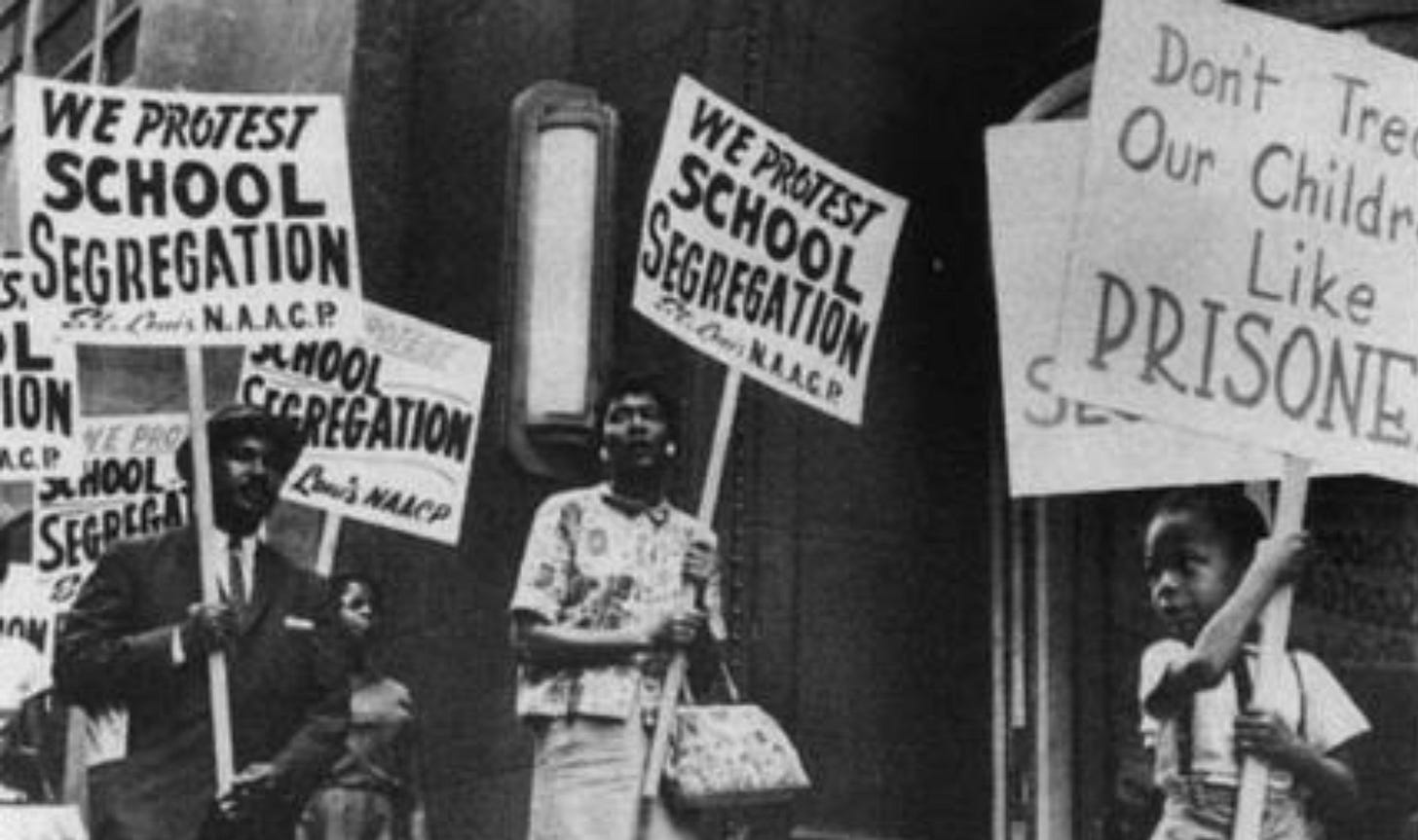
In the very likely case that you’re still not quite clear about what DEI (Diversity, Equity, and Inclusion) actually is, I’m going to offer you a definition that will instantly be deemed controversial and “phobic” in a multitude of ways by certain “progressives”. And I’m perfectly okay with that. That definition is:
An institutional approach to using minorities and special interest groups as pawns to further an agenda of control.
I’ve written a little bit about this issue in the past here, here, here, and here. I’ll try not to repeat myself too much, but if I do, it’s only because these things can’t be stressed enough.
The main tool in the DEI toolbox appears to be the redefining of words to mean the exact opposite of what everyone understands them to mean. This way, when they say their piece, people will just reflexively agree with them because they’re hearing the right words, or they won’t really understand how to disagree.
In the context of DEI, Diversity isn’t really concerned with anything other than race and gender, but it’s race and gender by numbers which is why certain quotas need to be set to achieve the predetermined outcome. What they’re really after when they say Diversity is conformity to their own ideals. A prime example of this attitude is how the BBC approaches its hiring policy.
According to The Telegraph, BBC guidelines instruct recruiters, “Don’t hire [candidates who are] unsuited to the organisation” if they are “dismissive or derisory of diversity and inclusion and surrounding topics”. I'm sure this is par for the course for most of our major news outlets in Canada as well.
Equity is a wonderful goal and is generally accepted to mean “freedom from bias or favoritism”. It’s one of the reasons people immigrate to this part of the world, and has been for the last 200 years.
In the DEI context though, equity no longer means freedom from bias or favoritism, but rather, the authoritative imposition of approved bias and favoritism in order to accomplish the leader’s interpretation of what constitutes equity. Freedom can’t possibly play a role, because that would never yield the results that their models have told them are desirable.
As for the inclusion aspect of DEI, what they’re really after is excluding anyone who doesn’t fully agree with everything they’re preaching. If I were to have a party at my house that was truly inclusive, it would mean that literally anyone could come, regardless of what they looked like, their political affiliation, or what kinds of opinions they held. Everyone would be welcome here, and we’d all inhabit the same space. Today’s version of inclusivity seems to focus more on who’s not allowed to attend, and as usual, our universities are the epitome of this trend.
Thanks to DEI, the University of Waterloo in Ontario now has a segregated "Black Folx Swim” and according to their website, "This time is dedicated to building a better relationship with water for the Black community." Yes, this was in bold print on their web page.
Before today I wasn't even aware of this racist trope that says black people can't swim, but apparently that's actually a thing. So, it's nice that the University of Waterloo has a special time for "black folx" because apparently they can't spell either...
Also thanks to DEI, the University of Toronto has segregated orientation for “Black-identified students” which, while offering a few legitimate services that wouldn’t likely be of interest to non-black students, is apparently the same as the orientation for white students, except that you need to “identify” as black if you want to be part of it. I’m not quite clear if that means that you actually have to be black or not, but you definitely need to identify as such.
Most of Ontario’s universities now have segregated orientation and segregated graduations.
So the questions on my mind are: Am I a racist for thinking this is stupid? And: Is this really what Martin Luther King Jr. died for? In a country where we are told ad nauseum that "diversity is our strength!" are we really so weak and pathetic that we can't handle a person of another race standing beside us at graduation? Or are we to believe that only black people are that weak and pathetic? Because it seems like that’s the message here. For the record, I fully and unconditionally reject that notion, and I think it’s terribly paternalistic to even suggest that might be the case.
When Martin Luther King Jr. gave his I have a dream speech in 1963, he was pleading with America to share in his dream where the “nation will rise up and live out the true meaning of its creed: We hold these truths to be self-evident, that all men are created equal.”
I have a dream that one day on the red hills of Georgia, the sons of former slaves and the sons of former slave owners will be able to sit down together at the table of brotherhood.
I have a dream that my four little children will one day live in a nation where they will not be judged by the color of their skin but by the content of their character.
I have a dream that one day down in Alabama… little Black boys and Black girls will be able to join hands with little white boys and white girls as sisters and brothers. I have a dream today.
Obviously this is a much-cited quote, almost to the point of being meaningless (sadly), and to look at the current state of our universities, it seems like perhaps we’ve even ceased to hear it, or at least lost our understanding of it.
I brought up this quote with someone a while back when discussing the topic of this new-fangled racism they’ve developed called antiracism (another perfect example of a word with a meaning opposite of what you might expect), and his response was: “Please tell me you’re not one of those people who believes that quote was about white people!?”
Well, I never said this guy was a genius.
By my reading of it (and I hope most other readings of it as well), this quote is about Black and White people. And if you care to read the rest of his speech, you’ll discover that the final paragraph, the triumphant culmination of this history-making, life-changing speech is his yearning to see that day when,
all of God's children, Black men and white men, Jews and Gentiles, Protestants and Catholics, will be able to join hands and sing in the words of the old Negro spiritual: Free at last. Free at last. Thank God almighty, we are free at last.
It seems to me Dr. King is talking about all people, in fact it almost sounds like he’s saying, all lives matter. Whoops…
Of course, this is just my reading of it, and I wouldn’t expect that to carry a lot of cred in this day and age, since I’m just some old white guy.
Wouldn’t it be great if Dr. King himself were still around to explain this a little better, since it seems so terribly hard (at least for some of us) to understand? Here’s a fun fact: It seems that Martin Luther King Jr., while a wonderful orator and an excellent writer of passionate speeches in his own right, was also a super busy guy who enlisted the help of at least one other person to write his speeches. This person’s name is Clarence B. Jones, and as luck would have it, Mr. Jones is still around (he’s 93) and he was also the guy who came up with the original draft of the I have a Dream speech.
In an interview with Francesca Block at the Free Press earlier this year, Jones said that when he wrote for King, he would do it the way he heard him speak, and that King had once told him, “Man, you are scary. It’s like you’re right in my head.” If anyone could give us a little better understanding of what that speech was about (since there are evidently people around who are still wondering), Jones is surely the guy. I encourage you to go and read that interview.
Towards the end of the interview, Jones mentioned that though he was initially in favour of affirmative action in the schools, he was a little less certain on the Supreme Court’s ruling to get rid of it, saying, “You had to stop the escalator somewhere.”
So, is the current state of our universities reflecting Dr. King’s dream? Or is it repeatedly jolting him awake with little hope of continuing his well-earned rest?
Clarence Jones closes that interview with a nod to Martin Luther King Day and a few words of advice for young black Americans:
“Commit yourself irredeemably to the pursuit of personal excellence. Be the very best that you can be. If you do that. . . our color becomes more relevant, because we demonstrate not that ‘black is beautiful’ as some slogan, but that black is beautiful because of its commitment to personal excellence, which has no color.”
These are undoubtedly words we could all take to heart, regardless of what colour our skins are. What Jones is advocating for here, and what Dr. King was advocating for then, is recognition based on merit and character, instead of on colour or class. And it should go without saying that this standard should be applied to everyone.
By any objective standard, our current universities have trampled several chapters of Dr. King’s dream under their progressive boot by giving in to shrill, activist voices in the guise of diversity, equity, and inclusion.
In what universe is this progress?










It turns out that private swimming pool rentals are now "weakness". So market economy = weakness too?
This is very useful because if I ever need to explain to someone what a ‘straw man’ is, I can just send them a link to this article and they will understand perfectly.
If you define a position however you want to define it and then proceed to argue against that position, is there much value in the ‘discussion’? Aren’t you just arguing with yourself in the mirror?